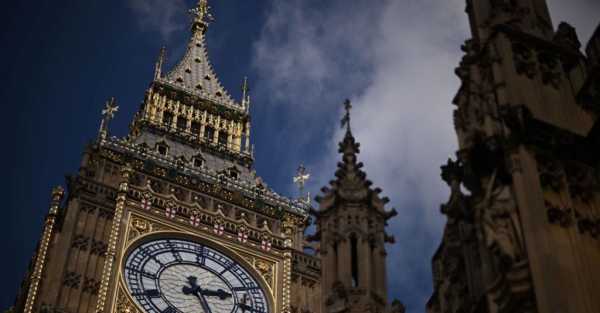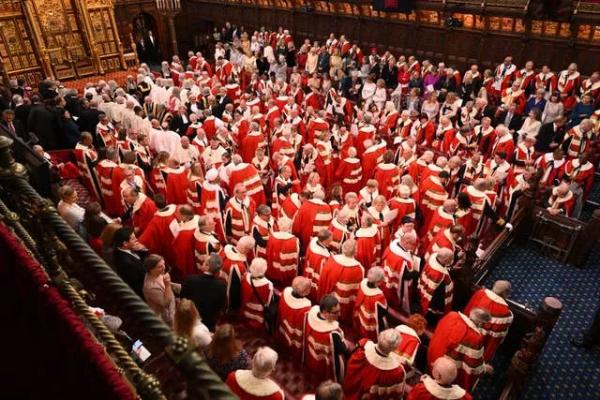
Peers have maintained the British parliamentary deadlock over Rishi Sunak’s Rwanda deportation plan in pressing their demands for changes to the controversial scheme.
The UK House of Lords snubbed ministerial calls to back down and again insisted on revisions to the Safety of Rwanda (Asylum and Immigration) Bill.
The fresh government defeats mean a continuation of wrangling at Westminster over the proposed law that aims to clear the way to send asylum seekers who cross the Channel in small boats on a one-way flight to Kigali.
The Bill and a treaty with Rwanda are intended to prevent further legal challenges to the stalled asylum scheme after the Supreme Court ruled the plan was unlawful.
As well as compelling judges to regard the east African country as safe, it would give ministers the power to ignore emergency injunctions.
Despite MPs overturning previous changes by the upper chamber, peers renewed their demand that Rwanda cannot be treated as a safe country until an independent monitoring body has verified that protections contained in the treaty are implemented.
The provision would also allow the secretary of state to effectively pull the plug on the scheme if the promised safeguards were not maintained.
In a further blow to the UK government, peers again supported an exemption from removal for those who worked with the UK military or government overseas, such as Afghan interpreters.
Pressing the amendment, Labour former defence secretary Lord Browne of Ladyton accused the government of giving “worthless” assurances.
He said: “Now is the time to give these people the sanctuary their bravery has earned.”
Urging peers to allow the legislation to proceed, Home Office minister Lord Sharpe of Epsom said: “We have debated the same issues for some time and it is of course right that the Bill is properly scrutinised. However, the time has come to get the Bill onto the statute books.”
He later added: “It is simply not right for criminals gangs to control our borders and decide who enters the UK. It is not right that they exploit vulnerable people. Nor is it right that they put lives at risk – their own and others.
“It is not right if this Parliament does not pass this legislation, which will enable us to protect those being exploited, protect our border and stop the boats.”
The Lords’ insistence on the amendments ensures a fourth round of “ping-pong” over the Bill, where legislation is batted between the two Houses until agreement is reached.

The draft law will now be sent back to the Commons, where MPs are set to consider the latest changes on Monday.
Mr Sunak has made “stopping the boats” a key pledge of his leadership, and sees the Rwanda scheme as a vital deterrent to Channel crossings.
The UK prime minister has previously said he hopes the flights can be begin before the end of spring.
Outside the chamber, British home secretary James Cleverly sought to lay the blame for the latest Lords defeats at the door of the opposition.
He said: “Terrified that the Rwanda scheme will work, and desperate to delay or disrupt over a hundred votes about stopping the boats, Labour have acted again to block the passage of the Rwanda Bill.
“It’s been another politically cynical effort by them, who have no alternative deterrent and no plan to tackle illegal migration, to frustrate the only solution on offer.”
But Labour’s shadow minister for immigration Stephen Kinnock branded the Rwanda plan “hare-brained”.
He said: “They can try to blame Labour, the Lords, or even the former military leaders who voted to amend the Government’s Bill this evening to prevent Afghan interpreters who helped our armed forces from being sent to Rwanda. But this is their mess, and they have no idea how to solve it.
“Rather than wasting more time and money on their failed scheme they should back Labour’s plan to properly protect our border security and go after the criminal smuggler gangs.”
Meanwhile, the Home Office confirmed a new deal with Vietnam to strengthen collaboration on efforts to tackle illegal migration, including through deterrence communication campaigns and intelligence-sharing.
Vietnamese nationals made up 5 per cent of small boat arrivals in the UK in 2023, up from 1 per cent in 2022 but the same proportion as in 2021, Home Office figures show.
From 2018 to the end of 2023, there were 3,356 Vietnamese small boat arrivals, putting Vietnam in the top 10 source countries.
Sourse: breakingnews.ie






